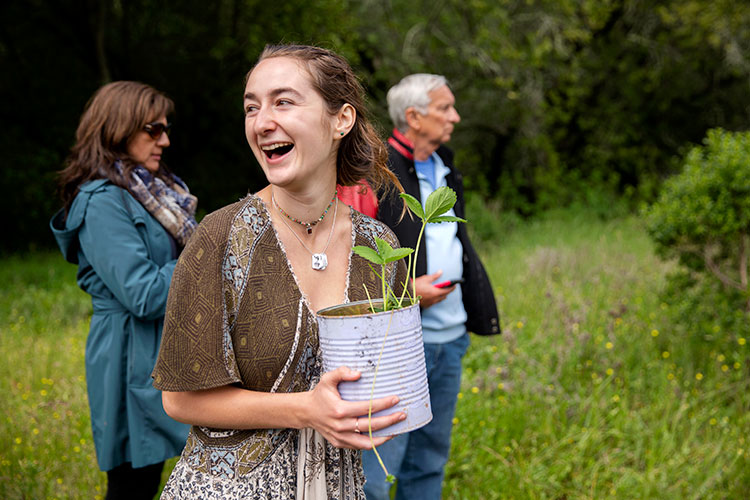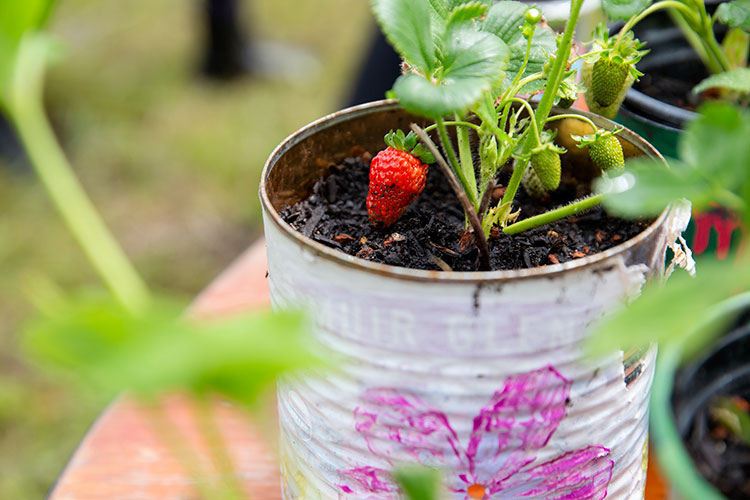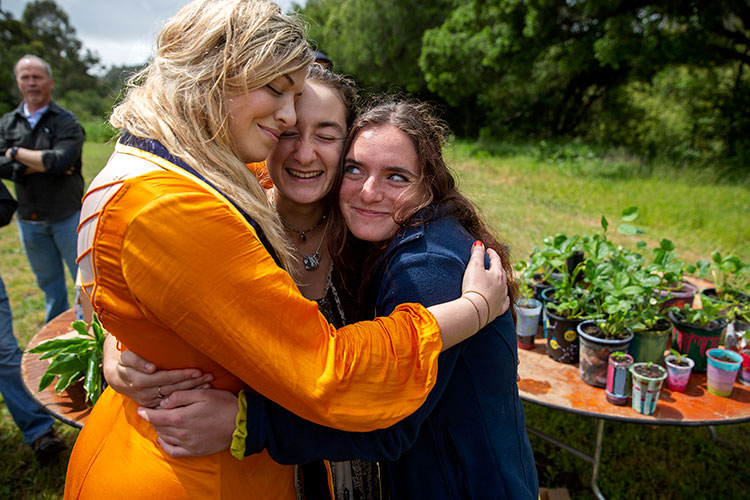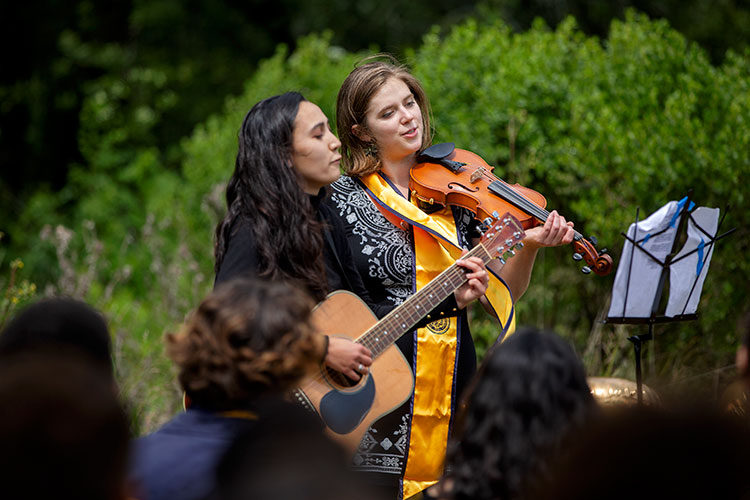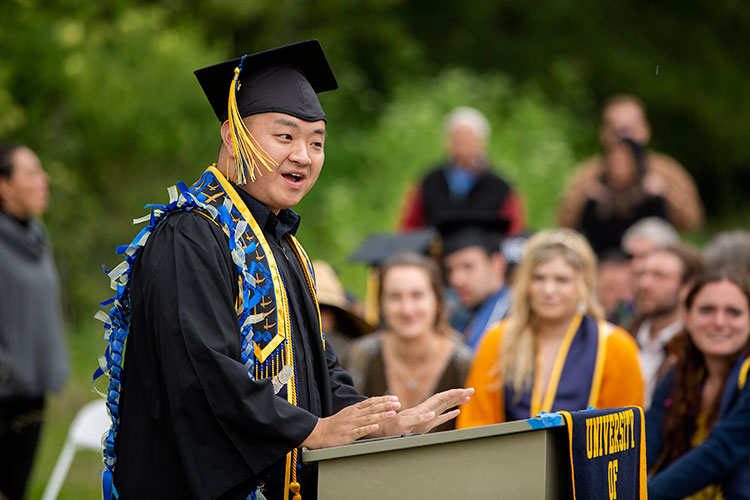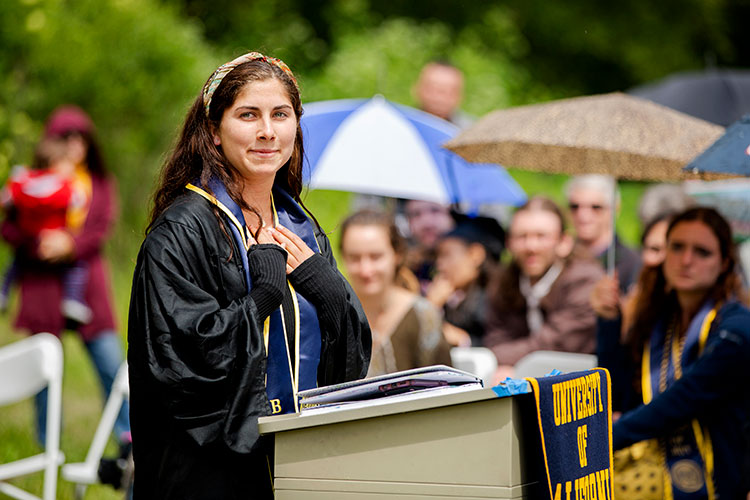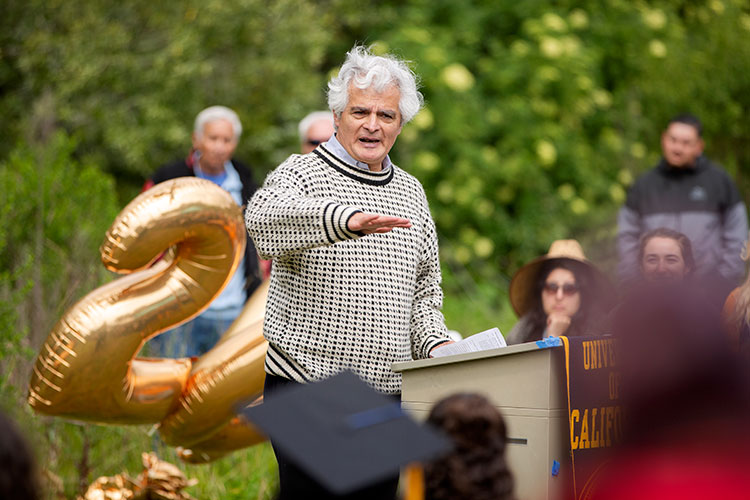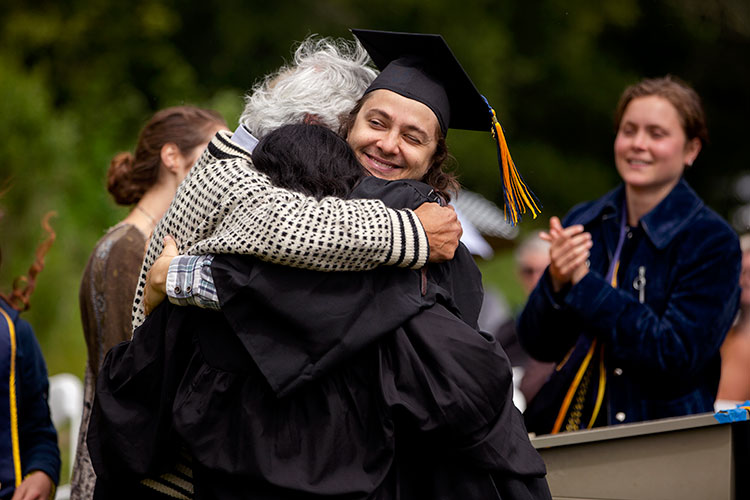Strawberries, succulents and saplings make unique ‘living diplomas’
For graduates of the Conservation and Resource Studies program, paper diplomas just won't do
May 20, 2019
For UC Berkeley students graduating with a degree in conservation and resource studies, a paper diploma just won’t do.
At a special alternative graduation ceremony held in Tilden Regional Park on Sunday, graduates of the Conservation and Resource Studies program instead each received a plant — an oak sapling, a strawberry plant, a pot of buckwheat grass or even a succulent — lovingly collected and cultivated by younger students.
These “living diplomas,” part of a nearly 50-year-old tradition in the program, symbolize the graduates’ ongoing growth as they explore the world beyond Berkeley.
“This is our form of love and remembrance and connection to our cohort, to past cohorts and to the future,” said graduating senior Tanya Hanson during a speech on Sunday.
“We hope that they take the diplomas and plant them or take care of them,” added Leah Jones, another new graduate. “The vision is that they will grow with the plant.”
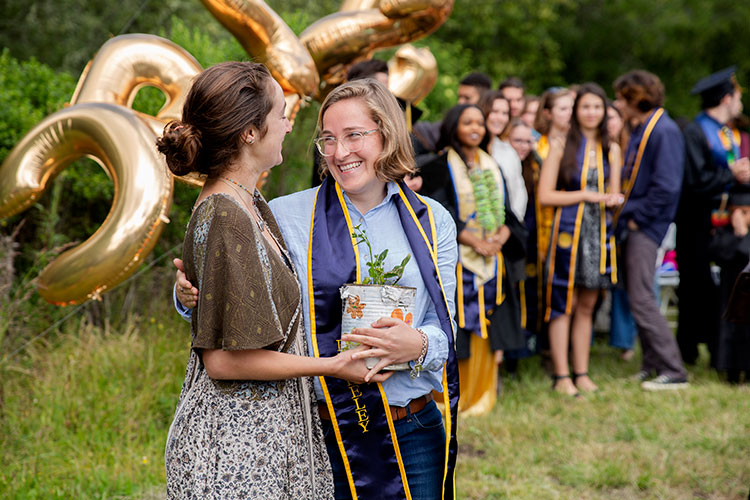
Skye Michel hands a living diploma to a student during the Conservation and Resources Studies program’s alternative graduation ceremony in Tilden Park last Sunday. (UC Berkeley photo by Brittany Hosea-Small)
The tradition harkens back to the founding of the conservation and resource studies major in 1970. At the time, deforestation was a major issue facing California and the rest of the world, and students graduating from the new program were irked by the idea of having a paper diploma as a final symbol of their time at Berkeley.
“People were very aware of the role that the paper industry had in [deforestation], especially locally, so they said, ‘We’re not going to support that — we want not to have a dead tree, but a living plant,’” said Ignacio Chapela, a faculty adviser for the program and an associate professor of environmental science, policy and management at Berkeley.
Organized in its entirety by students, the graduation event embodies the freedom and inclusivity of the major itself: There is no cost, no dress code and no limit on the number of guests each graduate can invite. Anyone is free to speak and perform, and food and decorations are either donated by, or sourced from, local sustainable businesses.
The event “embodies the emphasis that CRS (conservation and resource studies) puts on building a cohort and establishing a community,” said Skye Michel, a junior who is president of the Conservation and Resource Studies Student Organization (CRSSO), which runs the event each year. “It’s meant to be a way to celebrate everyone that’s been involved in the educational and personal growth of the CRS individuals.”

Tanya Hanson (left), Skye Michel and Leah Jones give the opening speech at the ceremony. (UC Berkeley photo by Brittany Hosea-Small)
This year, the alternative graduation ceremony drew around 200 people to a muddy meadow at Tilden Park, part of the East Bay Regional Park District. Friends and family danced barefoot to Inspector Gadje Balkan Brass, a horn and percussion ensemble from San Francisco, and feasted on local food and drink from Trader Joe’s, Acme Bread, House Kombucha, Lagunitas Brewing Company and Mixing Bowl Catering, all while dodging intermittent downpours.
Following the picnic and dancing, the crowd gathered for the ceremony, which comprised speeches from and performances by students and faculty, followed by the awarding of the living diplomas.
“[Living diplomas] very much represent the ethos of the students in the major, in that their work in the world is alive and vibrant and is something tender that needs to be cultivated,” said Erica Bree Rosenblum, an associate professor of environmental studies, policy and management and a faculty adviser in the Conservation and Resource Studies program. “To me, it’s a much more apt symbol for college graduation than a piece of paper.”
With a limited budget, the students sometimes have to get scrappy to gather enough living diplomas to go around. This year’s crop included California buckwheat donated by a student who grew it as part of a research project, strawberry plants originally cultivated for an unrelated fundraiser, and succulents, given to Jones by a friend.
“Last year, we had this grass that had yellow flowers, and it was really pretty, but this year, I like the diversity of the different plants,” said Hanson, CRSSO co-vice president.
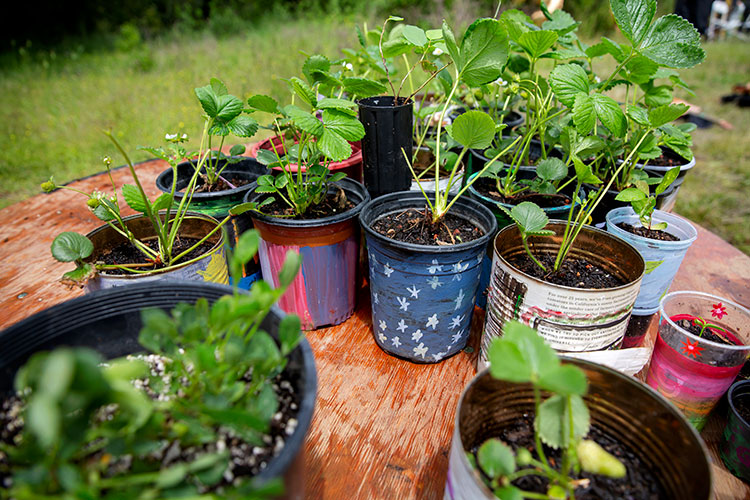
Pots of plants that will be given as living diplomas wait on a table before the ceremony begins. (UC Berkeley photo by Brittany Hosea-Small)
Some students who participated in CRSSO’s “Adopt-a-Senior” program, in which a younger student forms a mentorship relationship with an older student, grew their own plants from seeds. Junior Chris McCarron grew type of shrub called a snowdrop bush for his senior and a five-fingered fern for a friend’s senior.
“I grow a lot of California natives, and it’s very important to me that people (are) given plants that fit them,” McCarron said.
Chapela also chipped in by growing 12 oak saplings from acorns that he collected in Sonoma County and the Sierra Nevada — six of which he cultivated outside his office in a corrugated metal box, built to protect them against a local squirrel.
At the ceremony, Chapela read off the graduates’ names, while younger students eagerly lined up with plants in hand to pass on to the seniors.
Hanson, a first-generation college graduate who plans to apply to law school, received one of Chapela’s oak saplings — and she knows exactly what she’s going to do with it.
“My mom’s house has a 300-year-old oak tree,” Hanson said. “I want to plant mine next to it.”

The joyful, 55-member graduating class — holding the potted plants that are their living diplomas — poses for a group photo, along with several family members, classmates and friends. (UC Berkeley photo by Brittany Hosea-Small)
